
Alfredo Stroessner Matiauda was a Paraguayan army officer and dictator who served as President of Paraguay from 15 August 1954 to 3 February 1989.
Andrés Rodríguez Pedotti was a military officer and politician, being President of Paraguay from February 3, 1989, to August 15, 1993. He led the coup d'état on February 2 and 3, 1989, against the dictator Alfredo Stroessner Matiauda.

A caudillo is a type of personalist leader wielding military and political power. There is no precise English translation of caudillo, though it is often used interchangeably with "warlord" and "strongman". The term is historically associated with Spain, and with Hispanic America after virtually all of the region won independence in the early nineteenth century.
The Archives of Terror are a collection of documents chronicling some of the illicit activities undertaken by Paraguayan Dictator Alfredo Stroessner's secret police force. The documents have since been used in attempts to prosecute Chilean dictator Augusto Pinochet and in several human rights cases in Argentina and Chile. The collection of files proved the existence of Operation Condor - a CIA clandestine campaign of state terror and political repression in countries throughout Latin and South America. The documents were originally found on December 22, 1992, by lawyer and human-rights activist Dr. Martín Almada, and judge José Agustín Fernández, in a police station in Lambaré, a suburb of Paraguayan capital Asunción.
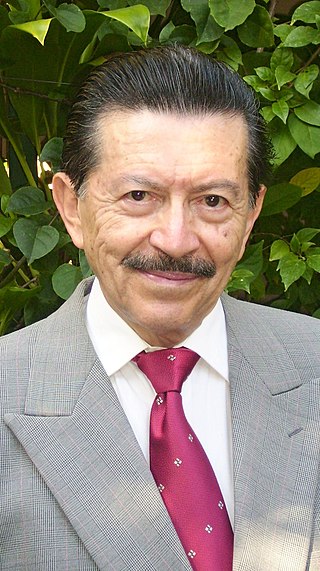
Martín Almada is a lawyer, writer and educationalist from Paraguay. A noted dissident and human rights activist, he was a prisoner of the Alfredo Stroessner regime. He is notable for uncovering the Archives of Terror.
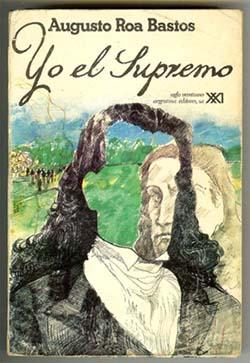
I the Supreme is a historical novel written by exiled Paraguayan author Augusto Roa Bastos. It is a fictionalized account of the nineteenth-century Paraguayan dictator José Gaspar Rodríguez de Francia, who was also known as "Dr. Francia." The book's title derives from the fact that Francia referred to himself as "El Supremo" or "the Supreme." The first in a long line of dictators, the Supreme was a severe, calculating despot. The central themes of the novel are power and language and the relation between the two. The Supreme believes himself to be above all power and history: "I don't write history. I make it. I can remake it as I please, adjusting, stressing, enriching its meaning and truth." Yet this assertion is constantly challenged by the very fact that while he achieves power by means of writing and dictating, these very same methods can be used by others to dispute his authority. Not even his own identity, represented by the personal pronoun I, is safe and can easily be usurped as is demonstrated by the incident of the pasquinade. Language, as powerful as it is, can never be controlled and can just as easily be used as an instrument of coercion as an instrument of resistance.
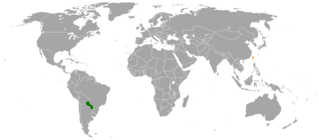
Paraguay–Taiwan relations, also known as Sino–Paraguayan relations or Paraguayan–Taiwanese relations are foreign relations between the Republic of Paraguay and the Republic of China (Taiwan). Both governments established diplomatic relations on 8 July 1957.
Pastor Milciades Coronel was the chief of the Investigations Department during General Alfredo Stroessner's dictatorship of Paraguay. He is considered by human rights activists, like Martín Almada, to be the most feared torturer of the dictatorship. The discovery of the "Archives of Terror" showed that he was the perpetrator of several human rights violations.
Agustín Goiburú was a politician from Paraguay. He was the leader of the movement MOPOCO that represented the strongest opposition to the dictatorship of Alfredo Stroessner. He was murdered during the Condor Operative in 1977. He was a doctor, specialized in orthopedic surgery in Brazil. When he returned to the country, he worked in the Social Prevention Institute and in the Police Policlinic “Rigoberto Caballero”.
The Painful Easter is the name given by the Paraguayan press to the repression of several farmers groups accused of participating in the clandestine movement Organización Primero de Marzo (OPM) by the police of the Alfredo Stroessner regime. The persecution reached many regions of the country and destroyed any attempt of building any kind of organization between agriculture workers.
The First Of March Organization (Organizacion Primero de Marzo) (OPM) was a clandestine movement created in Paraguay in the mid 70s to fight General Alfredo Stroessner’s dictatorship. It was the most serious attempt at creating an armed resistance to the dictator’s repressive government. Even though the organization was discovered before it was capable of attacking in the government in any way, the wave of repression which followed the discovery was enormous. During that period of repression, several leaders of the organization were captured, tortured and then executed, but the violence also extended to many regions of the country, affecting several agrarian movements and agrarian workers that had nothing to do with the OPM.
Continuísmo is the practice by incumbents of keeping themselves in office beyond legal term limits for their elected office, often a result of or cause of democratic backsliding and the erosion of human rights. Some Latin American heads of state indefinitely extend their rule by way of reducing or abolishing term limits, via constitutional revision. Examples are Juan Perón in Argentina; Alfredo Stroessner in Paraguay; and Evo Morales in Bolivia. Another tactic is legislative enactment, such as with Jorge Ubico, in Guatemala in 1941. A third tactic is by plebiscite, such as in the cases of Carlos Castillo Armas in Guatemala, Marcos Pérez Jiménez in Venezuela and the 1988 failed attempt by Augusto Pinochet in Chile. A further type is committing a successful self-coup, such as Getúlio Vargas in Brazil. Yet another way is the imposition of a weak successor candidate allowing rule by the outgoing incumbent, as when Emilio Portes Gil and Abelardo Rodríguez in Mexico allowed Plutarco Elías Calles, "el jefe máximo", to continue ruling, a period known as the Maximato. The extension of family rule occurred in Nicaragua with the Somoza family; in Argentina with Juan Perón; and then more recently with Nestor Kirchner and his wife Cristina Fernández de Kirchner; and in Cuba with Fidel Castro and his brother Raúl Castro. Despite Peru's one-term limit established by its 1979 constitution, Alberto Fujimori illegally extended his rule to ten years through two re-elections.
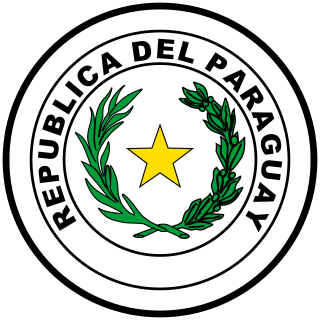
The Republic of Paraguay is governed under the constitution of 1992, which is the country's sixth since independence from Spain in 1811.
Sendero ('Path') was a Spanish-language newspaper in Paraguay, published by the Paraguayan Episcopal Conference (CEP). Initially it was a fortnightly and was later converted into a weekly newspaper.
There are 17 indigenous tribes in Paraguay with the majority having their territories in the Chaco region. Tribes in this region include the Guaraní, Ayoreo, Toba-Maskoy, Aché and Sanapan which according to the census from 2002 number an estimated 86,000 or roughly around 2 per cent of the total population. These peoples have faced persecution particularly under the dictator Alfredo Strossner that some observers called a genocide.

The dictatorship of Alfredo Stroessner, colloquially known as El Stronismo or El Stronato, was the period of almost 35 years in the history of Paraguay in which army general Alfredo Stroessner ruled the country under a one-party authoritarian military dictatorship, from 15 August 1954 to 3 February 1989.
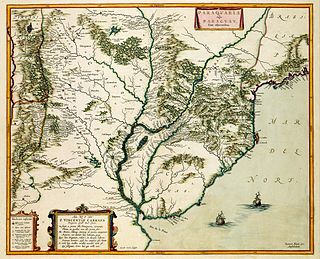
The 1954 Paraguayan coup d'état occurred in May 1954. It was led by Alfredo Stroessner, with the support of Epifanio Méndez Fleitas, and resulted in the overthrow of the government of Federico Chávez. The coup was the culmination of a complex series of political rivalries within the ruling Colorado Party. Approximately 25 people were killed during the putsch, which helped set the stage for the election of Stroessner as president of Paraguay later that year.

The 1989 Paraguayan coup d'état, also known as La Noche de la Candelaria, was a coup d'état that took place on 2–3 February 1989 in Asunción, Paraguay led by General Andrés Rodríguez against the regime of long-time leader Alfredo Stroessner. The bloody overthrow which saw numerous soldiers killed in street fighting was sparked by a power struggle in the highest echelons of the government. Rodríguez's takeover spelled the end of El Stronato, Stroessner's thirty-four year long rule, at the time the longest in Latin America, and led to an array of reforms which abolished numerous draconian laws and led to the liberalization of Paraguay.
Paraguayan Communist Party (independent) (in Spanish: Partido Comunista Paraguayo (independiente) is a communist political party in Paraguay. PCP(i) was founded in 1967 as a split from the Paraguayan Communist Party (PCP). Since the defeat of the guerrilla groups led by the party in 1963, opposition to Creydt in the PCP had grown. He was first criticised for his authoritarian behaviour and later for his anti-Cuban and pro-Chinese positions. He was deposed as secretary general in August 1965 and excluded from the party in 1967. His party faction first kept the same name as the pro-soviet faction but since 1973 “independent” was added to the party name. Many of the activities of the PCP(i) were directed against the PCP. The party was subjected to harsh repression by the regime of Alfredo Stroessner. It publishes “Unidad Paraguaya”. When Creydt died in 1987 the party was very weak. When Stroessner fell in 1989 the party stayed in a semi-clandestinity.








